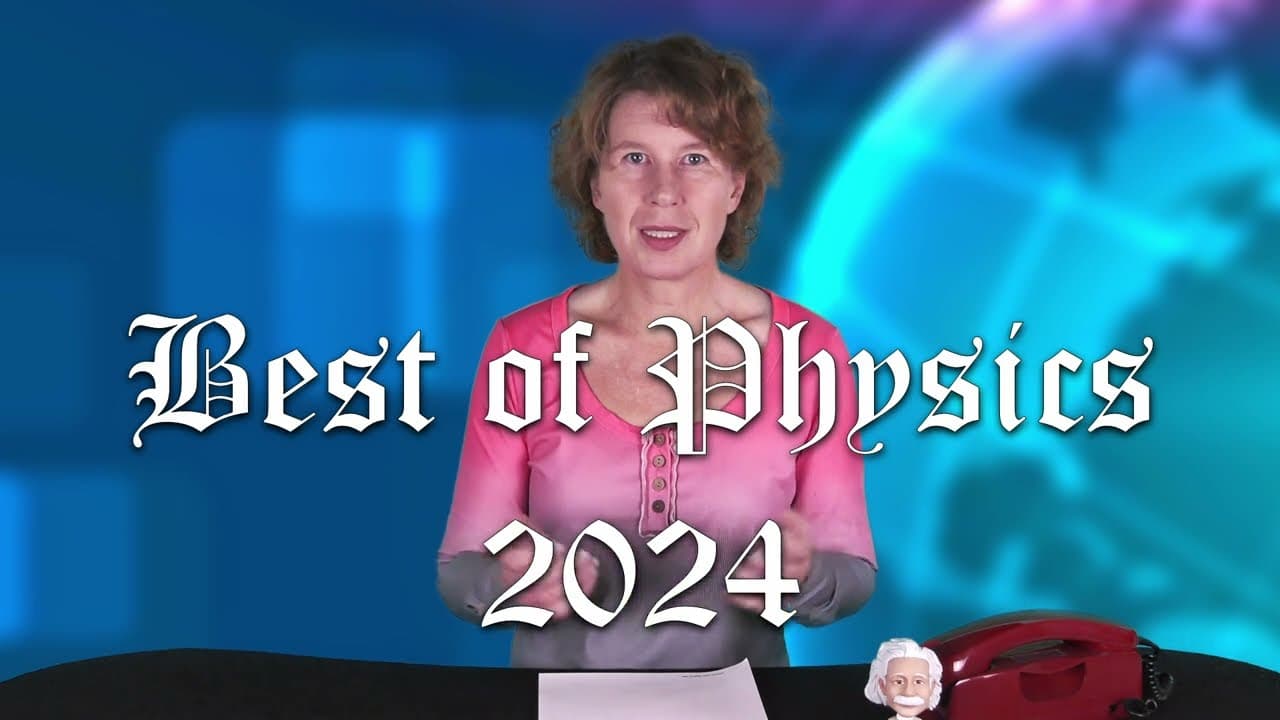Discovering the Year's Top Physics Stories
I never imagined that sifting through the year's physics developments would reveal such a mix of breakthroughs and uncertainties, from gravity debates to AI's role in science, all shaping our understanding of the universe.
TL;DR
I kicked off with the ongoing clash over modified gravity from wide binary stars, hinting at potential shifts in cosmic laws.
Then I explored a fresh theory on quantum gravity that adds randomness to make it mesh with uncertainty, sparking curiosity about its tests.
Next came quantum computing's error correction success, showing it scales without chaos and building excitement for future tech leaps.
I highlighted AI's leap in math with DeepMind's tools, impressing experts and raising questions about its impact on physics next.
Finally, tentative evidence emerged that dark energy is weakening, teasing a dramatic rethink of the universe's fate and expansion.

As I reflect on the past year, I started by ranking the five most compelling physics stories based on my perspective. At number five, the analysis of wide binary systems—pairs of stars orbiting each other at large distances—has stirred debate over Modified Newtonian Dynamics, or MOND, as an alternative to dark matter. These systems should show a shift from the standard one-over-R-squared gravity law to a one-over-R law if MOND holds, affecting their orbital periods, but conflicting analyses from different groups have left us with contradictory results that will likely persist into 2025.
Moving to number four, I delved into Jonathan Oppenheim’s innovative postquantum gravity theory, which gained attention early in the year. Unlike traditional approaches that aim to quantize gravity, Oppenheim suggests that introducing randomness into space-time could reconcile it with quantum uncertainty, potentially testable through precise mass measurements. While I’m skeptical about its accuracy, the math behind it could prove useful for combining different types of randomness in future research.

At number three, I highlighted Google's Quantum AI group's milestone in error correction, proving it works as expected up to about 50 qubits without increasing errors. This is crucial for developing practical quantum computers, as they demonstrated a faster calculation on a 105-qubit chip, even if the result was just a random distribution. It's a step forward, though we're still far from scaling to millions of qubits for real-world applications.
Number two brought me to DeepMind's advancements with AlphaProof and AlphaGeometry, blending neural networks with symbolic reasoning to tackle complex math. This neuro-symbolic approach helped achieve silver-medal level in the International Mathematical Olympiad, earning praise from experts like Fields Medalist Timothy Gowers. I see this as a pivotal moment, as mastering math could soon extend to physics, revolutionizing how we solve problems.
Finally, topping my list at number one is the growing evidence that dark energy, the force driving the universe's expansion, might not be constant but is weakening over time. Data from the Dark Energy Survey, examining supernovae light variations with distance, and DESI, analyzing patterns in galaxies like Baryon Acoustic Oscillations, suggest this change, though it's only around 4 sigma significance. If confirmed, it could mean the universe's expansion slows or even reverses, altering our cosmic future dramatically.

As I wrap up this overview, these stories remind us that physics is always evolving, with each discovery building on the last to paint a clearer picture of reality.
Looking ahead, the debates and innovations discussed here could redefine our grasp of the universe, encouraging more questions and explorations in the years to come.
Key Takeaways
Modified gravity theories face ongoing contradictions from binary star data, keeping the dark matter debate alive.
Oppenheim’s quantum gravity idea introduces randomness as a bridge to quantum physics, offering new mathematical tools.
Quantum computing error correction is scaling successfully, paving the way for more reliable future devices.
DeepMind's AI advancements in math signal a potential breakthrough for applying similar techniques in physics.
Emerging data suggests dark energy is dynamic, which may challenge and reshape models of the universe's expansion.











